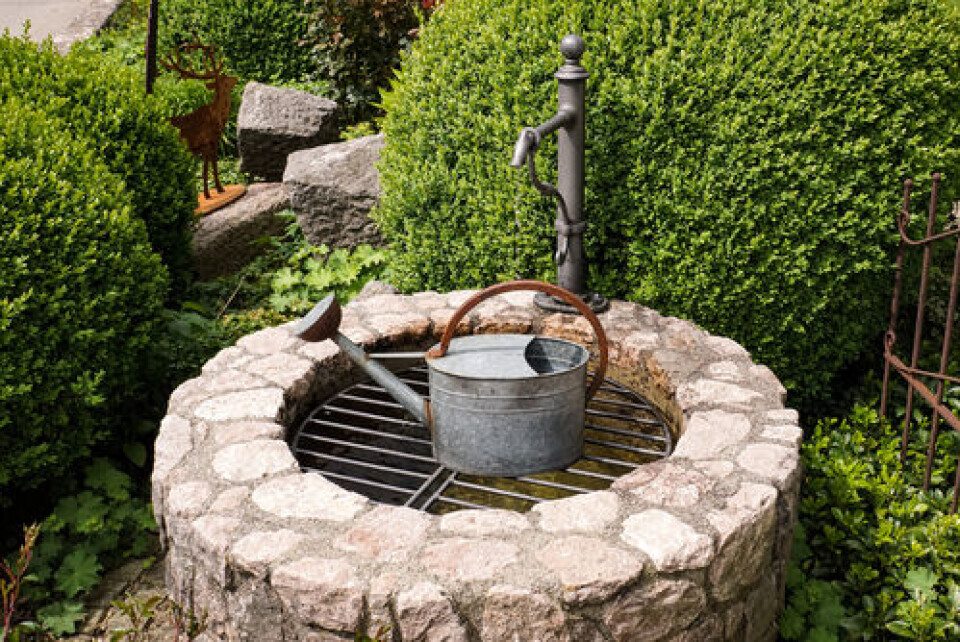-
MAP: French communes with ‘forever chemicals’ detected in tap water
The results come from a focused study on the excessive presence of PFAS in some water sources
-
Plastic in bottled water: these brands identified in France as least affected
A new consumer study claims four popular brands offer the safest water to drink
-
Why the cost of water is rising for homes across France
Factors including inflation and increased anti-pollution measures have been blamed
Can I use water from well to water garden during droughts in France?
We look at how restrictions apply to well water - and also rainwater

Reader question: Can we use water from our well to water our garden when a water restriction is in place?
Water restrictions are already in place in several parts of France and more are expected to follow shortly as the weather gets warmer.
As the situation varies from department to department you should check with your local mairie if in doubt.
To see more about current water restrictions in France, visit the official government website. You can also check water shortages in your area on the website Propluvia.
In the drought of 2022, many departments applied water restrictions limiting the filling of swimming pools or the watering of gardens.
France uses three main levels for restrictions:
‘Alerte’: People are generally asked to use less water, and activities such as watering your garden or washing your car may be limited to certain hours. These are usually 8:00 and 20:00, but will depend on local regulations. There could also be limits on using water for filling swimming pools or agricultural uses.
‘Alerte-renforcée’: The time limit for watering gardens may be further restricted or the activity may be completely banned. The same applies for washing cars, and strict limits or bans are imposed on watering green spaces and golf courses.
‘Crise’: The use of water except for necessary means is banned. Watering gardens and washing cars is forbidden, but there may be exceptions for certain trees, bushes, and vegetable gardens within certain hours.
There is no exception to these restrictions if you use water from a well in your garden to water your garden as wells often draw from underground water resources and fall under the same usage restrictions as other water.
Notably, if decrees to combat drought mention “tous les prélèvements d’eau dans le milieu naturel”, this includes wells alongside boreholes and water withdrawn from rivers or other bodies of water.
Rainwater not included
Collected rainwater, however, does not fall under these restrictions and can be used to water plants and clean cars.
There are, however, restrictions on using rainwater domestically and it cannot be used for consumption in any form nor for personal hygiene.
If your roof contains lead or if it is made of asbestos-cement, collected rainwater is completely banned inside homes.
Rain collected from tiled, slate or steel roofs can be used for toilets, cleaning floors, and washing clothes as well, but should be filtered for the latter.
Rainwater should only be collected from roofs that are not usually accessible and you should not use antifreeze products in the collection tank.
Rules on use of well water
In general, you should be careful what you are using your well for.
According to the environmental code, the only permitted uses are for flushing toilets, washing floors/patios, watering plants or for washing clothes and dishes (provided you have analysed the water as safe).
Only in the case of your house having no running water connection is it possible to use well water for drinking.
Well water used to water vegetable patches and orchards should be regularly checked to see if the water is safe for consumption.
Related articles
Rainwater, wells: eight questions about water restrictions in France
Water restrictions set to launch as France faces chronic lack of rain
























